380059
4-Chloro-3-nitrobenzonitrile
97%
Autenticatiper visualizzare i prezzi riservati alla tua organizzazione & contrattuali
About This Item
Formula condensata:
ClC6H3(NO2)CN
Numero CAS:
Peso molecolare:
182.56
Beilstein:
1639111
Numero CE:
Numero MDL:
Codice UNSPSC:
12352100
ID PubChem:
NACRES:
NA.22
Prodotti consigliati
Saggio
97%
Forma fisica
powder
Punto di fusione
98-100 °C (lit.)
Gruppo funzionale
chloro
nitrile
nitro
Stringa SMILE
[O-][N+](=O)c1cc(ccc1Cl)C#N
InChI
1S/C7H3ClN2O2/c8-6-2-1-5(4-9)3-7(6)10(11)12/h1-3H
XBLPHYSLHRGMNW-UHFFFAOYSA-N
Cerchi prodotti simili? Visita Guida al confronto tra prodotti
Descrizione generale
FT-IR and μ-Raman spectra of 4-chloro-3-nitrobenzonitrile have been recorded in the range of 400-4000cm-1 and 100-4000cm-1, respectively. It has been prepred from the reaction of 4-chloro-3-nitrobenzamide and phosphorus oxychloride. Crystal structure of 4-chloro-3-nitrobenzonitrile has been reported. Molecules of 4-chloro-3-nitrobenzonitrile are linked by weak intermolecular C-H…O and C-H…N hydrogen bonds.
Applicazioni
4-Chloro-3-nitrobenzonitrile may be employed for the radiosynthesis of analogs of serotonin transporter (SERT) ligands for use in positron emission tomography (PET) studies and for the preparation of N-(4-cyano-2-nitrophenyl)glycine.
4-Chloro-3-nitrobenzonitrile may be used in the synthesis of 3-nitro-4-thiocyanobenzonitryl.
Avvertenze
Warning
Indicazioni di pericolo
Consigli di prudenza
Classi di pericolo
Eye Irrit. 2 - Skin Irrit. 2 - STOT SE 3
Organi bersaglio
Respiratory system
Codice della classe di stoccaggio
11 - Combustible Solids
Classe di pericolosità dell'acqua (WGK)
WGK 2
Punto d’infiammabilità (°F)
Not applicable
Punto d’infiammabilità (°C)
Not applicable
Dispositivi di protezione individuale
dust mask type N95 (US), Eyeshields, Gloves
Scegli una delle versioni più recenti:
Possiedi già questo prodotto?
I documenti relativi ai prodotti acquistati recentemente sono disponibili nell’Archivio dei documenti.
Galina R Demina et al.
PloS one, 4(12), e8174-e8174 (2009-12-18)
Resuscitation promoting factors (RPF) are secreted proteins involved in reactivation of dormant actinobacteria, including Mycobacterium tuberculosis. They have been considered as prospective targets for the development of new anti-tuberculosis drugs preventing reactivation of dormant tubercle bacilli, generally associated with latent
Bo-Nian Liu et al.
Acta crystallographica. Section E, Structure reports online, 65(Pt 1), o92-o92 (2008-01-01)
In the title compound, C(7)H(3)ClN(2)O(2), the Cl, C and N atoms are coplanar with the aromatic ring. In the crystal structure, weak inter-molecular C-H⋯O and C-H⋯N hydrogen bonds link the mol-ecules. The π-π contact between the benzene rings, [centroid-centroid distances
Yusuf Sert et al.
Spectrochimica acta. Part A, Molecular and biomolecular spectroscopy, 107, 248-255 (2013-02-26)
In the present study, the experimental and theoretical harmonic and anharmonic vibrational frequencies of 4-chloro-3-nitrobenzonitrile were investigated. The experimental FT-IR (400-4000 cm(-1)) and μ-Raman spectra (100-4000 cm(-1)) of the molecule in the solid phase were recorded. Theoretical vibrational frequencies and
S X Cai et al.
Journal of medicinal chemistry, 40(5), 730-738 (1997-02-28)
We report on a series of alkyl- and alkoxy-substituted 1,4-dihydroquinoxaline-2,3-diones (QXs), prepared as a continuation of our structure-activity relationship (SAR) study of QXs as antagonists for the glycine site of the N-methyl-D-aspartate (NMDA) receptor. The in vitro potency of these
A A Wilson et al.
Journal of medicinal chemistry, 43(16), 3103-3110 (2000-08-24)
A series of four 2-(phenylthio)araalkylamines have been radiolabeled with (11)C and evaluated as potential radiotracers for imaging the serotonin transporter (SERT) by positron emission tomography (PET). All four candidates display high affinity for SERT and low affinity for the dopamine
Il team dei nostri ricercatori vanta grande esperienza in tutte le aree della ricerca quali Life Science, scienza dei materiali, sintesi chimica, cromatografia, discipline analitiche, ecc..
Contatta l'Assistenza Tecnica.
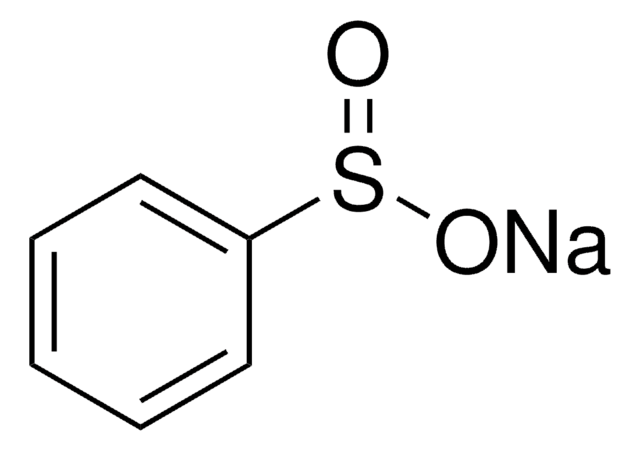
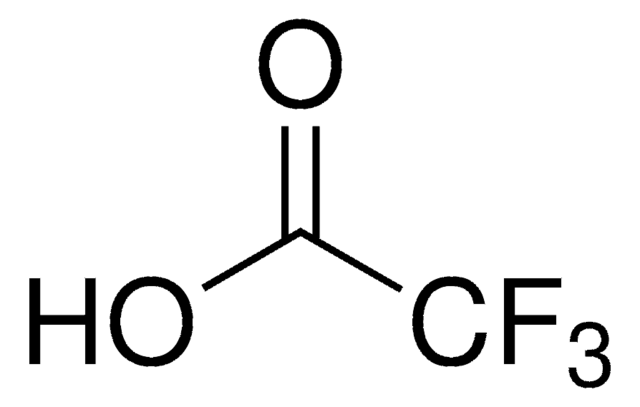
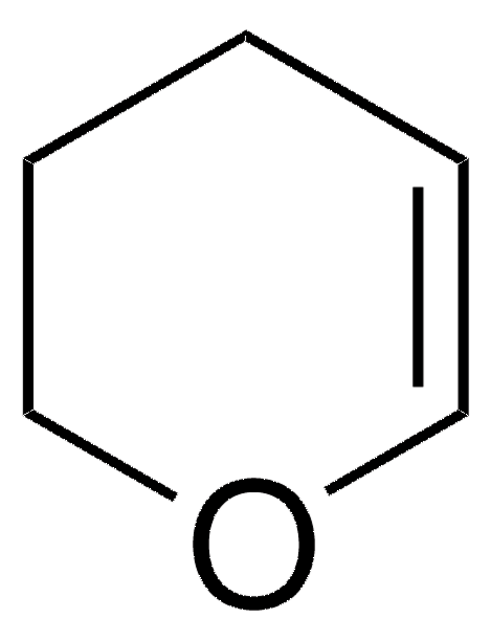

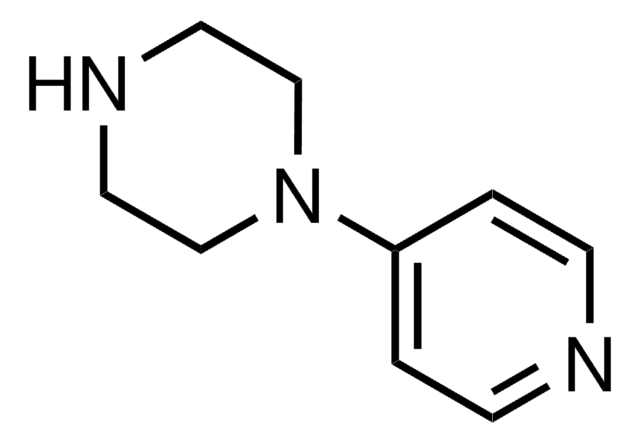
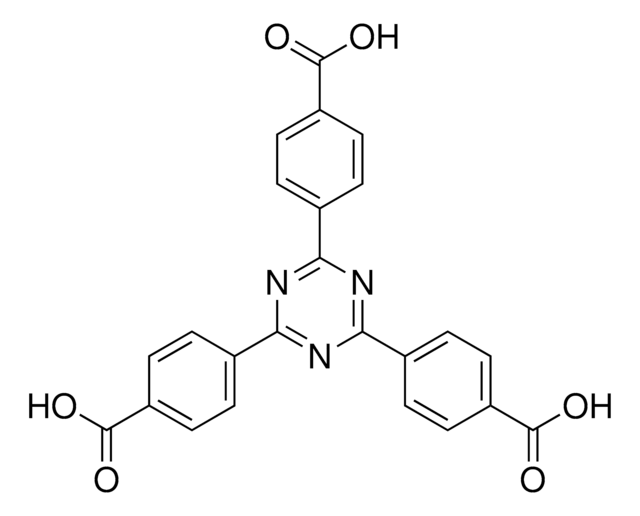
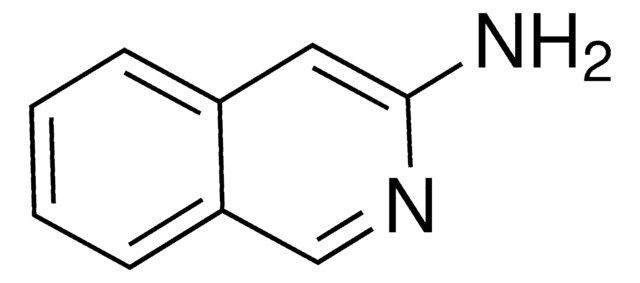

![(R)-1-[(SP)-2-(Dicyclohexylphosphino)ferrocenyl]ethyldi-tert-butylphosphine ≥97%](/deepweb/assets/sigmaaldrich/product/structures/809/974/e027b628-7c2e-4bde-be7e-f9298d0c8b04/640/e027b628-7c2e-4bde-be7e-f9298d0c8b04.png)
